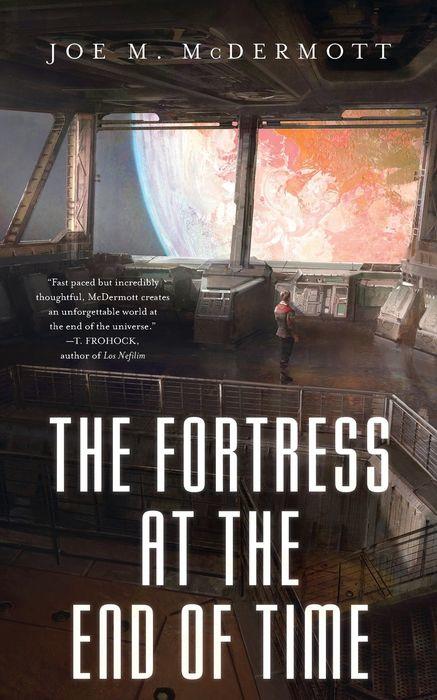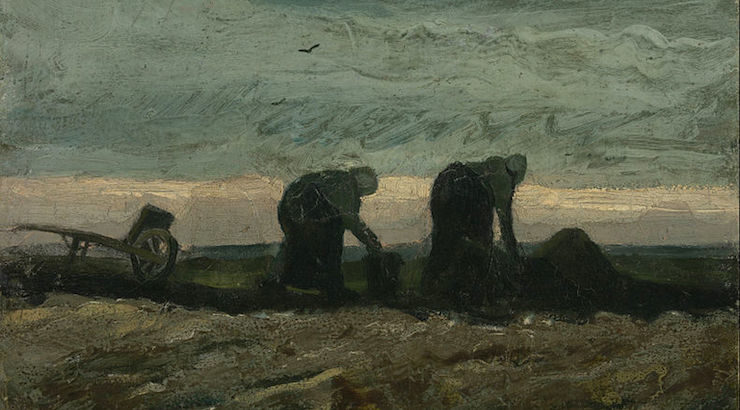I have a lot of fruit trees on my little, suburban lot. It’s a postage stamp lot, and packed in as tight as can be are six citrus trees, two pomegranates, two pears, two plums, two peaches, a jujube, three grapevines, a barbados cherry, two olive trees, a loquat, an elderberry, passionfruit vines, blackberries, raspberry… Let me think. I think that’s most of them. Papayas come and go, as well as other annual fruits and vegetables, and I love to draw bees and butterflies with flowers and herbs, but when I think of my garden, the first thing I think about is the lemon tree next to my front door that blooms in the spring and hands me hundreds of golden jewels in the dark days of winter.
I think about the astonishing bloom of the passion vines, which have yet to produce edible fruit but should, and the bird nest hidden deep in my orange tree. I think about the fig tree, that rambling beast eager to consume all available landspace, and beating her back into her corner. I think about the season of the fruit trees, where I prune in the spring, where I watch the flowers and leaves break through the bark in a burst of life right when I am most thoroughly weary of even our mild winter, down in south Texas, to the long season of fruiting, and then harvest, and then sleep.
I think about how every day I go into my yard and without much effort encounter a butterfly or wild bee, there. I think about how many fantasy novels are written and read by people who don’t take even a moment to think about what the weather and landscape mean to available food. In some ways, the conspicuous absence when I read fantasy is found in the way food is grown, harvested, prepared.
Before modern transportation and refrigeration technology, the most important question of every single day was not who would marry whom or which rising star would overtake the court. The most important question was much simpler. Will there be bread to eat?
Even a king could starve. Even the greatest emperor could not command a single pear tree. When Christ himself encountered a fig without fruit, he did not command the tree to produce, but instead removed it from the orchard of the world. No earthly power compels the tree to make fruit.
Before the modern systems, every knight errant could swing a plow with practiced hands, and understood the importance of the humble pea plant. Armies marched on their stomachs, as the saying goes, and the amount of labor that goes into every mouthful of rice even with modern technology is staggering. The struggle of food, getting enough, and maintaining it every day, all year long, in all seasons, is mostly absent from the literature I read, concerned with the exciting stuff like kings and vagabonds and rebel uprisings and the like.
The amount of work that goes into a single grain of wheat, a single loaf of bread, has been lost to us. We have divided up that labor across different industries such that we see a farmhouse table in our minds populated with edible things, and we think nothing of the farm from which everything rose up to create that picturesque scene. We don’t see all the manual labor required to get the raw material of soil into seed into a form that we can eat and put on that table. Walk into any high school and ask a hundred students what the difference is between butter and margarine, or when a specific fruit or vegetable is in season, and wonder at this future we are building, disconnected from the material reality of our own biological nature, eternally present inside the ecosystem of the earth, never separated from it.
As a writer, I am drawn to the changing of the seasons as it is lived in my perennial trees. I am in awe of the abundance that comes, and the feeling of wealth when I gather buckets of figs and have to figure out how to preserve them—for they will rot in days if I do not. It is a hobby that comes naturally to an interest in fantasy novels and historical fiction. As a writer, I am inspired by this sense of space created by inhabiting my space through growing food.
Buy the Book


The Fortress at the End of Time
I have grown a bit of corn from seed and dried it and ground it up into corn flour, and saved the seeds for another year’s cornbread. I have reached into the past to try and figure out how the people who lived here for a thousand years and more managed to survive on acorns and roots and pumpkins and peppers. We talk about world-building all the time, as writers, but we do it in our heads, where we can invent whatever suits us. When I build a world in my little yard, and it is an act of world-building, of managing forces and distances, constructing ecosystems and figuring out solutions to problems I unintentionally create, I am forced to face the hard truth of building a world.
I have lost plants. I have removed failed experiments. I have lost the harvest to possums and birds. I have pruned hard where I would prefer to prune easy. I have made mistakes. Yet, every season, I am building a world. I am watching the anole lizards climb the papaya trunk and sneak under the deck. I watch the birds blow through on their migrations. I see the butterflies being born from the cocoons that litter the yard around the passionvines and rue and sweet almond verbena. The cats come in the dark. The possums and vermin steal my harvest. I hunt them, and trap them, and try to think like them to reshape my little world. That sense of physical space has become as important to my writing as anything ethereal.
Want to be a better thinker about the systems of your constructed worlds? Want to be a better historian to better understand what happened before the stories hardened into histories? Embrace your landscape, and try to build it in your image, and succeed and fail to thrive there. If anything, it will make the story of the farmboy, and his quotidian world, more interesting than whatever eventual rise to power over other farmboys, where everyone is secretly a farmboy pretending at power.
Originally published in January 2017.
Joe M. McDermott is best known for the novels Last Dragon, Never Knew Another, and Maze. His work has appeared in Asimov’s, Analog, and Lady Churchill’s Rosebud Wristlet. His novel The Fortress at the End of Time, is available from Tordotcom Publishing. He holds an MFA from the University of Southern Maine’s Stonecoast Program. He lives in Texas.










